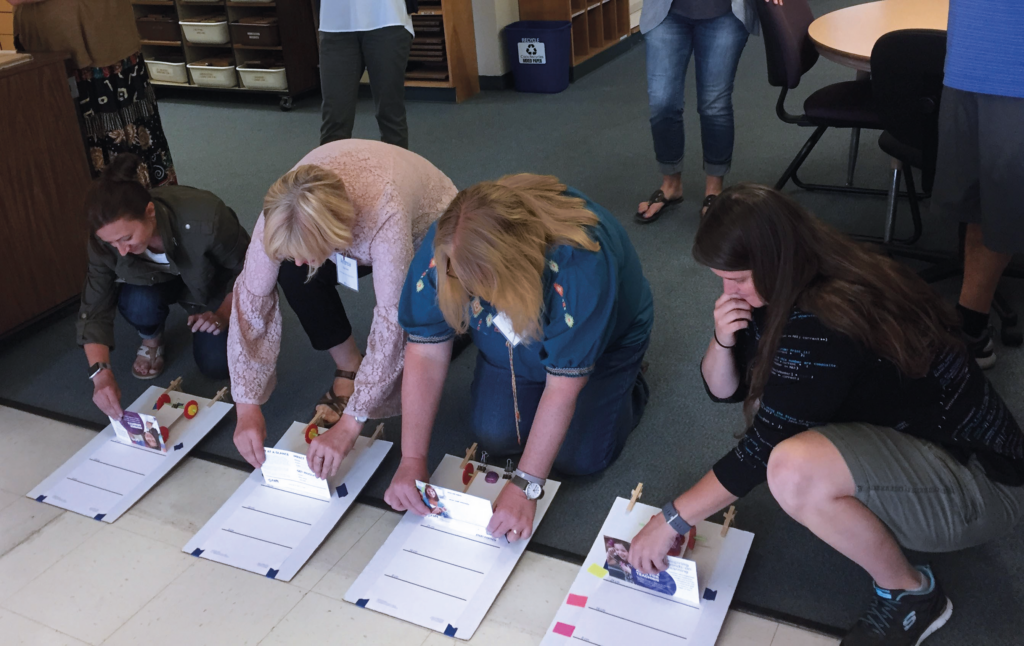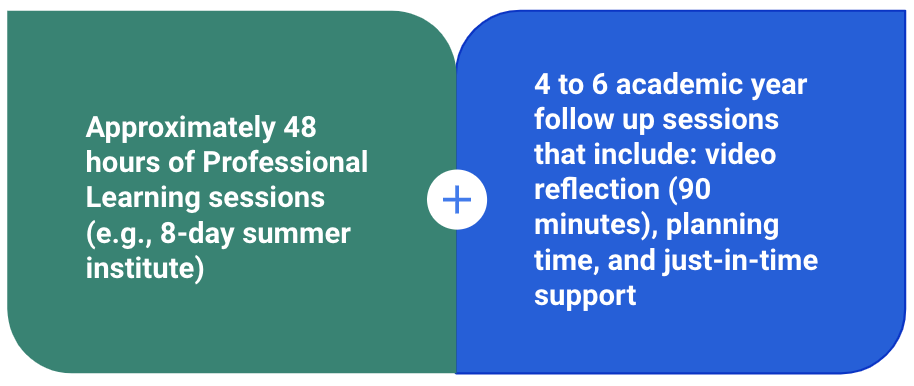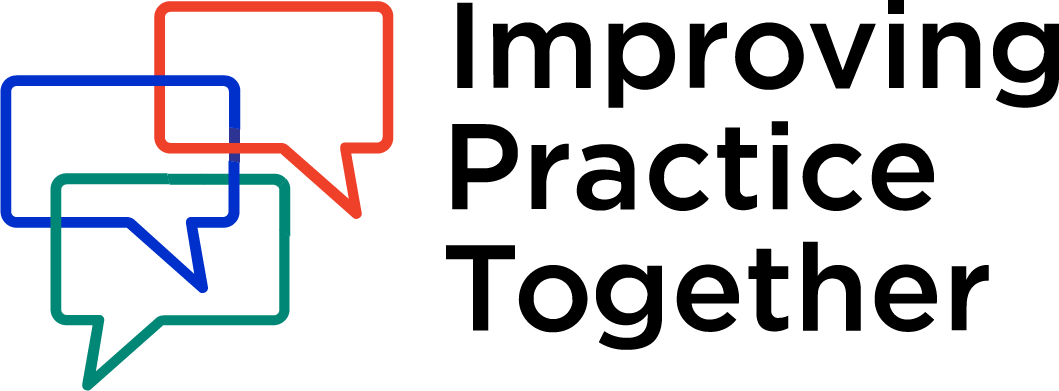Professional Learning Design and Resources to Support the Teaching of Scientific Argumentation

Improving Practice Professional Learning Sessions are designed for teacher leaders and other professional learning providers to present to teachers. The sessions are designed to be used in an 8-day Institute or workshop context, with the addition of follow-up reflection sessions as needed. Most sessions are between 1.5 and 2.5 hours long, and have a clear step-by-step leader guide, slides, handouts, and videos. The Sample Institute Agenda provides an overview of how those 8 days (6 hours each) might flow.
The sessions are active experiences that encourage teachers to explore different aspects of research-based science pedagogy, especially focused on arguing from evidence, and to inspire shifts in teachers’ thinking about their own teaching and learning. Each session includes activities and routines to support teachers in applying what they’ve learned to their instruction and nurture a reflective learning community among teachers. The discussion and reflection embedded in each session provide teachers with opportunities to share their classroom expertise and come to deeper understandings about teaching and learning.
Most sessions include one or more student activities that serve as examples of how the pedagogy from the session is applied with students. Professional learning activities are always most effective when they are situated in the context of the curriculum participating teachers use in their classrooms. The IPT project was conducted with a district that uses the FOSS® curriculum. Therefore, almost all sample lessons utilized in professional learning sessions are from FOSS modules in the target grades of the professional learning program (grades 3-5). If your district uses a different science curriculum, we recommend replacing the sample activities with ones from your own curriculum. Each time an activity is used in our sessions, the professional learning goals that accompany the activity are articulated— this will support you in substituting an appropriate activity from your adopted curriculum.
*FOSS® (Full Option Science System) is a research-based science curriculum for grades Pre-K–8 developed at the Lawrence Hall of Science, University of California, Berkeley, and published and distributed by Delta Education/School Specialty. The FOSS Program bridges research and practice by providing tools and strategies to engage students and teachers in enduring experiences that lead to deeper understanding of the natural and designed worlds. https://foss.lawrencehallofscience.org/
Several professional learning sessions were created to complete a learning cycle for teacher participants. In these cases, one session may provide an opportunity to access prior knowledge about pedagogy and do a model student activity, while the next session will ask the participants to reflect on the model activity, provide pedagogical support or other related content, and provide an opportunity for application and further reflection. We have noted in the table below which sessions must be delivered together for a complete learning cycle. The clustered sessions were separated so as not to overburden individual teacher leaders or small teacher leader teams who were relatively new to facilitating professional learning experiences.
Suggested Professional Learning Pathway

Sample 8-Day Summer Institute Agenda

